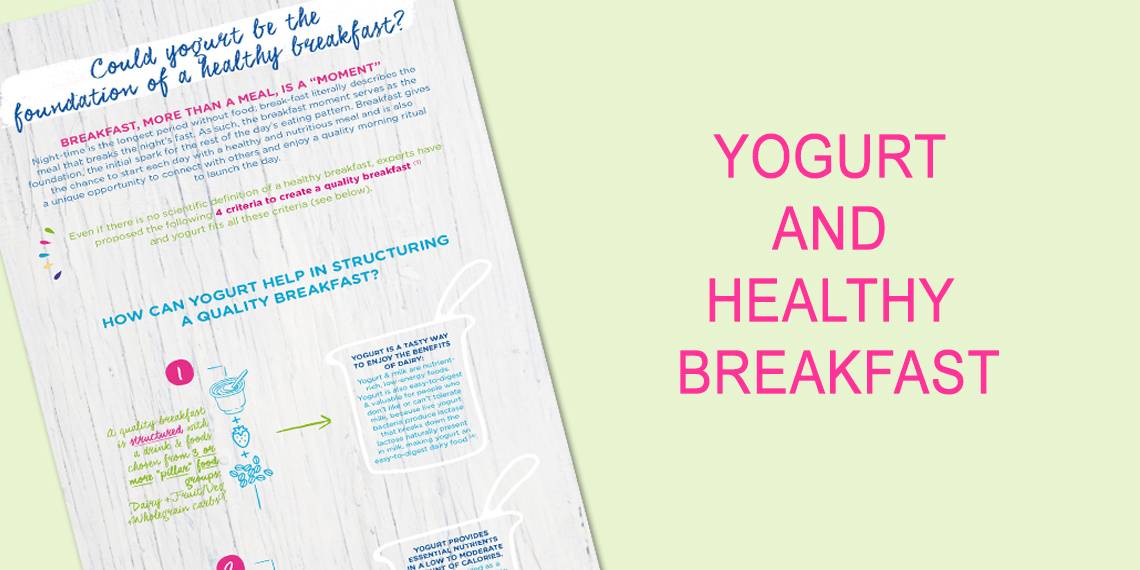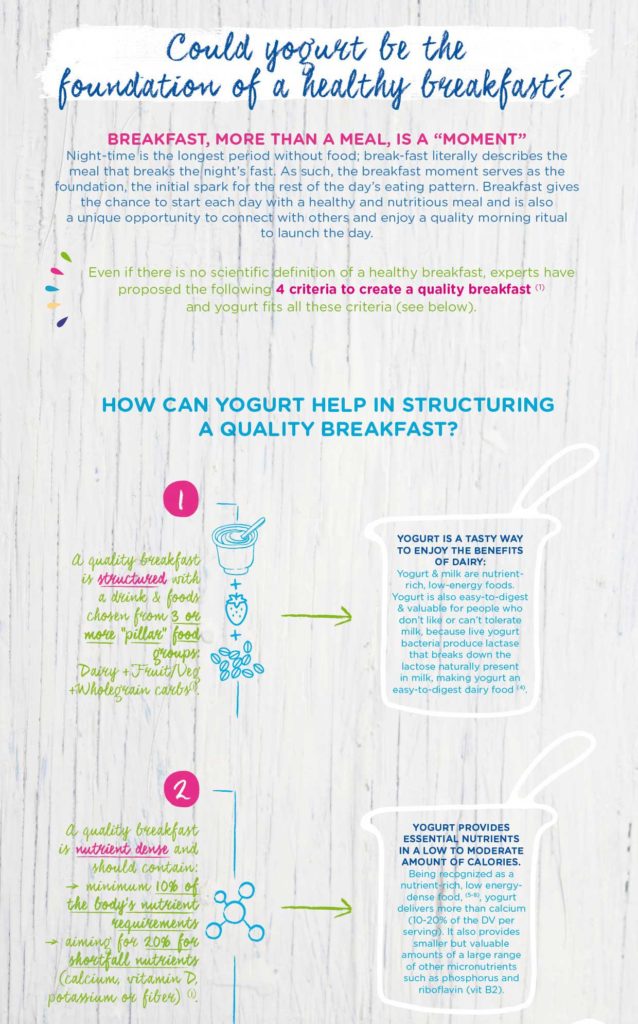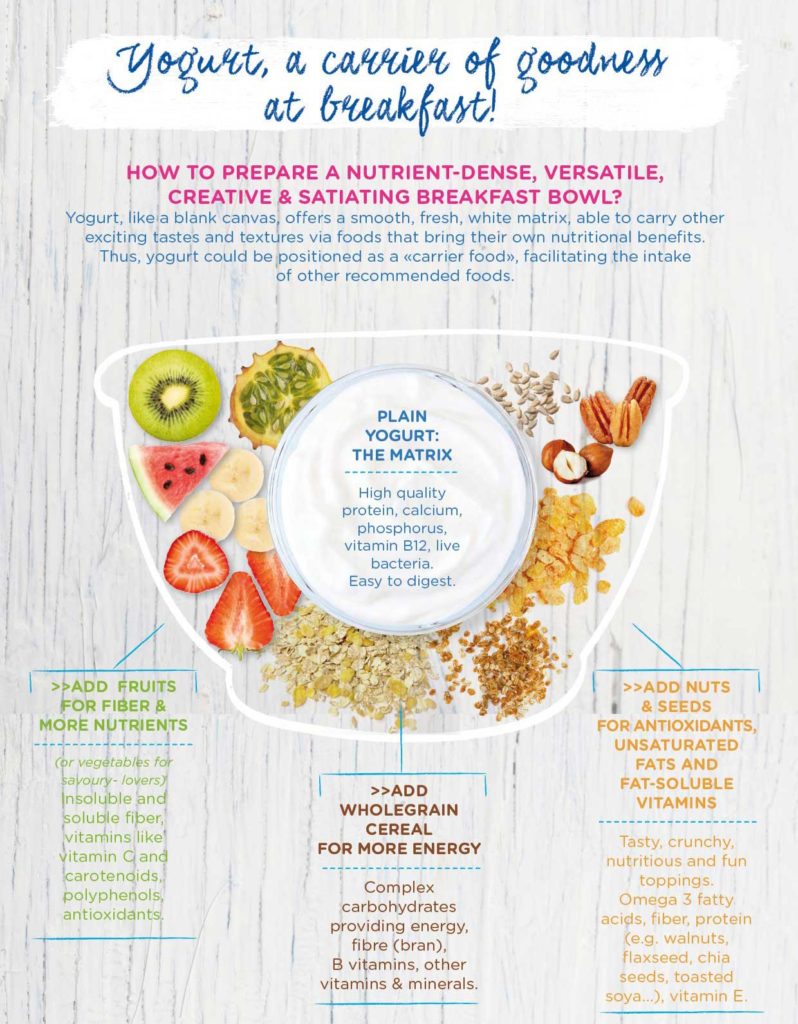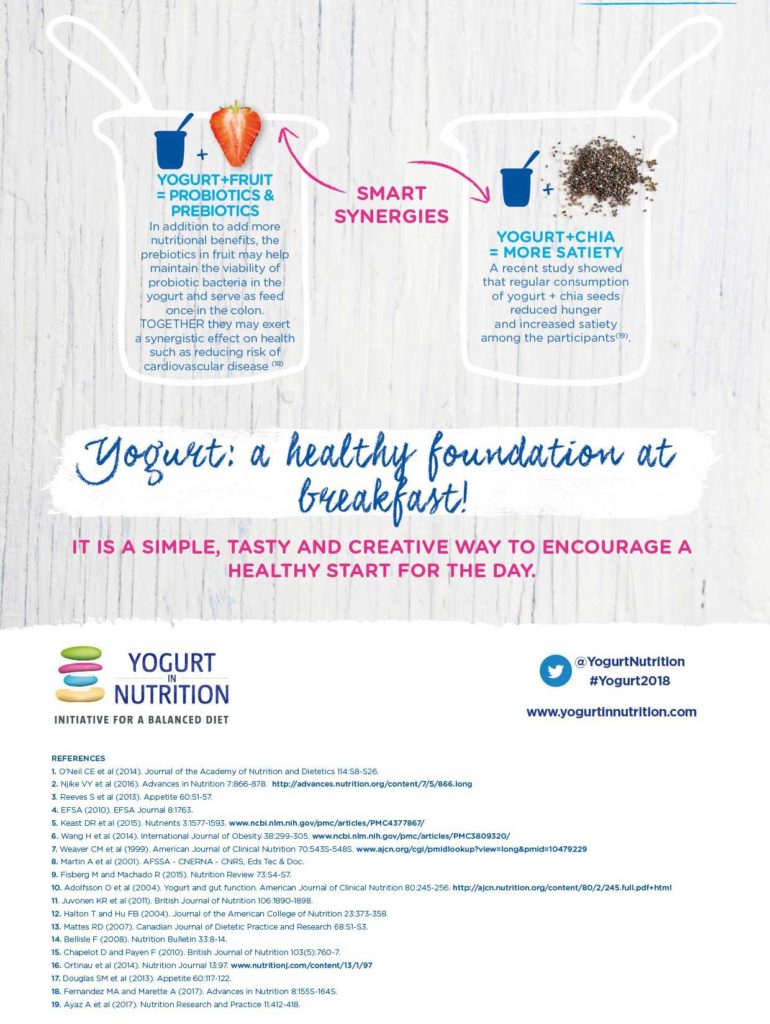Breakfast is often said to be “the most important meal of the day”, and this title is not awarded randomly. Once you wake up, several challenges are at stake. After sleeping for hours, your body needs replenishment and needs energy for you to be able to achieve the challenges of your day. A healthy diet starts at breakfast, even when little time is dedicated to this meal.
This infographic will give you the clues about quality breakfasts. Don’t hesitate to download it!
What is a healthy breakfast?
There is no official definition of healthy breakfast. Experts have discussed this question and suggest 4 main criteria to consider your breakfast as healthy, which are:
- A quality breakfast is structured with a drink and foods chosen in 3 or more “pillar” food groups: Dairy, Fruit and/or Vegetables, Wholegrain carbs
- A quality breakfast is nutrient dense
- A quality breakfast is rich in protein and carbs
- A quality breakfast is energetic
Let’s just point out that yogurt fits all criteria! Including yogurt in your breakfast is an easy way to comply with these criteria, see our infographic below to discover how.
What are the benefits of adopting a regular healthy diet?
Besides providing you a tasty moment, breakfast offers health benefits:
- Breakfast is an opportunity to improve overall nutrient intake.
- A quality breakfast brings a steady flow of energy until lunch. It provides satiety through morning.
- Breakfast is associated with a lower risk for overweight and obesity and associated troubles.
- Breakfast has been linked with improvement in academic performance and psychosocial functioning, as well as cognition among children and adolescents.
If you wish to adopt healthy breakfasts or if you find this topic appetizing, you will probably appreciate our recipe of healthy breakfast bowl: check our infographic!
Additional references:
-
O’Neil CE et al. The role of breakfast in health: definition and criteria for a quality breakfast. Journal of the Academy of Nutrition and Dietetics, 2014, 114:S8-S26.
-
Kral TVE et al . Effects of eating breakfast compared with skipping breakfast on ratings of appetite and intake at subsequent meals in 8- to 10-y-old children. AJCN, 2011, 93:284–291.
-
Timlin MT and Pereira MA. Breakfast frequency and quality in the etiology of adult obesity and chronic diseases, 2007,Nutrition Reviews 665:568-281.
-
Barton BA et al. The relationship of breakfast and cereal consumption to nutrient intake and body mass index: The National Heart, Lung, and Blood Institute Growth and Health Study. Journal of the American Dietetic Association, 2005, 105:1383-1389.
-
O’Neil CE et al. Nutrient intake, diet quality, and weight/adiposity parameters in breakfast patterns compared with no breakfast in adults: National Health and Nutrition Examination Survey 2001-2008. Journal of the Academy of Nutrition and Dietetics, 2014, 114:S27-43.
-
Sakurai M et al. Skipping breakfast and 5-year changes in body mass index and waist circumference in Japanese men and women. Obesity Science & Practice, 2017, 3:162-170.
-
Adolphus K et al. The effects of breakfast on behavior and academic performance in children and adolescents. Frontiers in Human Neurosciences, 2013, 7:425.







